Search Results
Showing results 481 to 500 of 621
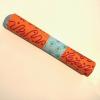
Let's Make Music
Source Institutions
In this activity, learners will create their own percussion instrument with recycled materials. Learners will explore design, fabrication, cause and effect and sound through this activity.
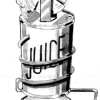
A Model Nuclear Power Plant Steam Turbine
Source Institutions
In this activity (on pages 20-23 of PDF), learners build a model of a power plant using simple materials.
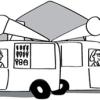
Tourist Town: Dominating Sets
Source Institutions
In this activity, learners use a fictitious map of "Tourist Town" and counters to problem solve how to place ice-cream vans on street intersections so that every other intersection is connected to one
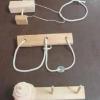
Topological Puzzles
Source Institutions
In this activity, learners construct three math puzzles out of simple materials like wood, string, and Styrofoam.
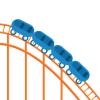
Roller Coasters
Source Institutions
In this design challenge, learners will create their own roller coaster using household objects for the track and a marble or small ball as their cart.
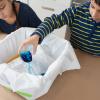
Make a Lake
Source Institutions
Where rainwater goes after the rain stops? And why there are rivers and lakes in some parts of the land but not in others?
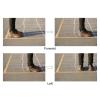
Kidbots
Source Institutions
In this activity, one person acts as a human robot while another acts as their developer by programming their actions.
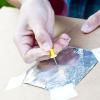
Measure the Sun's Size
Source Institutions
In this activity, learners make their own pinhole viewer in order to measure the size of the sun.
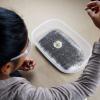
Exploring the Solar System: Craters
Source Institutions
"Exploring the Solar System: Craters" is an active, hands-on activity that demonstrates how craters form, and what they can teach us about the history and composition of planets and moons.

Sail Car Design
Source Institutions
This activity (on page 3 of the PDF under GPS: Sailboat Design Activity) is a full inquiry investigation into design optimization.
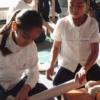
Invent on the Spot
Source Institutions
In this activity, learners design a device to solve a problem: how to get a ball out of a drain pipe.
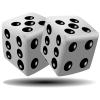
Probability: Remove One
Source Institutions
In this math lesson, learners are given 15 chips and a number line labeled from 2-12.
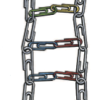
The Ladder of Life
Source Institutions
In this activity, learners identify the DNA base bars guanine, cytosine, thymine and adenine. Learners create a DNA model using colored paper clips to resemble these base pairs.
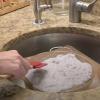
Papermaking at Home
Source Institutions
Learners will follow a specific process to make their own paper using scrap paper, newspaper, or junk mail.
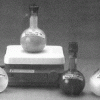
Pearlescent Pigments
Source Institutions
This is written as a display, but can easily be adapted to a hands-on activity. Learners observe and shake containers of shiny liquids.
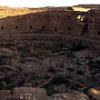
Seasons and Shadows: Investigate How Shadows Shift Throughout the Year
Source Institutions
In this activity you'll see how the sun's tilt on its axis changes the length of shadows. For example, why is your shadow longer in winter than in summer?
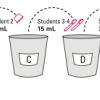
A System of Transport
Source Institutions
In this activity about the human heart (on page 5 of the PDF), learners work in teams to simulate the volume of blood moved through the circulatory system by transferring liquid into--and through--a s
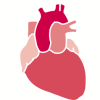
What is Blood Pressure?
Source Institutions
In this activity about heart health (on page 34 of the PDF), learners measure their own blood pressure using an electronic blood pressure monitor with a self-inflating cuff (included in cost of materi
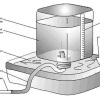
Catch Your Breath: Build a Spirometer and Measure your Lung Capacity
Source Institutions
In this activity, learners will measure their lung capacity by making their own spirometer. Learners will then explore factors that affect the amount of air the lungs can hold.
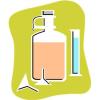
Patterns and Functions: Fill 'er Up
Source Institutions
In this math lesson, learners predict, interpret, and sketch graphs of functions related to the shapes of bottles. A measure of water is poured into a container.
